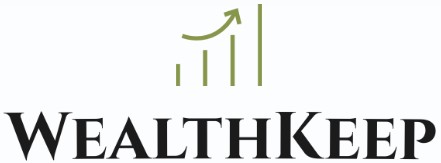The Federal Reserve is about to raise interests rates in a very meaningful way. They are a bit late to the party, in my humble opinion. Finally, 2022 will be the year of fighting back on inflation by using a more aggressive monetary policy, that is, raising interest rates.
 So what now? Don’t panic. Prepare.
So what now? Don’t panic. Prepare.
- Tune up your financial plan to anticipate and prepare for all phases of the business cycle. Financial planning is an all weather process, and must include both short- and long-term solutions, including how to deal with eventual economic downturns, market volatility and federal monetary policy. You should always have a plan, but if you don’t, getting your plan together right now is the smart move.
- Reduce risk in your portfolio. No, you are not a market timer, so don’t dump everything. Look at your holdings and see where you can take some long-held profits and trim off some market risk. For instance, allocating away from growth stocks and toward defensive physical assets may be a relevant protective approach for you. Remember, you don’t go broke taking profits, so when markets are at or near historic highs, take some profits! And what if the market goes higher after you sell? Who cares? We aren’t fortune tellers. Take the profit, and live to reinvest another day.
- Be realistic about your return expectations. Interest rates are going to go up, but with inflation at a forty-year high, fixed rates will still put you underwater. If you earn a fixed 2%, but inflation is at 7.5%, then you have lost 5.5% of your principal. Get it?
- Cash in the bank. Cash means covering emergencies. Cash means capitalizing on opportunities that will appear as the markets decline. Be in a good cash position. Sure, the rates will suck, but cash is queen as interest rates rise.
- Short term treasury bond rates will still suck, even after rate increases, but they are safe. Consider short maturities if you don’t need all that cash laying around.
…inflation is literally stealing money from you with every transaction you make…
- Consider hard assets. Precious metals like gold and silver tend to do well in recessionary times. They can provide a good hedge to the rest of your financial assets in declining markets. Gold and silver coins, rounds and bars are easy to buy, easy to store, and easy to sell. And commodities, like timber, agriculture, copper, oil, and so forth, will prove good stores of value and offer profit potential.
- Count your pennies and cut dumb spending. You will live without Starbucks. As God as my witness, you will live! A better choice: McDonald’s, any size for a buck. Best choice: travel mug filled with home brew. Get it? Every dumb spend has a series of smart alternative solutions. Cut dumb spending habits in all phases of the business cycle, especially as prices jump and wages fall.
- Cut dumb debt. That means credit cards. Revolving credit is dumb. Khakis on credit is a dumb idea. Starbucks on a credit card is a super dumb idea (I admit it, I’ve done it, we’ve all done it :)).
- Reduce or eliminate leveraged debt like a mortgage which helps you finance an appreciating asset, like your home. Khakis don’t appreciate in value. Aggressively search for opportunities to refinance old leveraged debt (mortgages and credit lines) to historically low rates before they rise.
- Work more hours, save more money. Get some differential OT coming your way, or start a side hustle. Unless you are continually “employee of the month,” or playing squash with the boss, watch your backside. Trade your TV time for a side hustle, and be your own boss.
So, in summary, while it is always good to plan ahead with your money, it especially important when rates are rising and inflation is literally stealing money from you with every transaction you make. Start today and build solid habits that will prepare you for every phase of the business cycle.

 She has problems beyond money, but she’s strong, and brave, and good, so I give her my best advice with due respect, loyalty and love for her and her whole family, because they deserve better.
She has problems beyond money, but she’s strong, and brave, and good, so I give her my best advice with due respect, loyalty and love for her and her whole family, because they deserve better. Many people don’t recognize the warning signs that they should seek help organizing and optimizing their financial life. Others may be so embarrassed by their financial situation that they avoid seeking the help that can get their life turned around.
Many people don’t recognize the warning signs that they should seek help organizing and optimizing their financial life. Others may be so embarrassed by their financial situation that they avoid seeking the help that can get their life turned around.

 This is BIG, and hopefully the start of a very welcome trend. The State of West Virginia fires Blackrock over ESG mandates. West Virginia, WealthKeep salutes you!
This is BIG, and hopefully the start of a very welcome trend. The State of West Virginia fires Blackrock over ESG mandates. West Virginia, WealthKeep salutes you!

